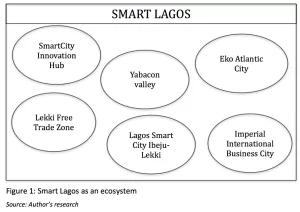Nigeria, Africa’s largest economy and most populous nation, has long grappled with systemic challenges—youth unemployment, inflation, and overdependence on oil revenues. Yet, beneath these struggles, a quiet revolution is unfolding. Fueled by a tech-savvy population and rapid digital adoption, Information and Communication Technology (ICT) is emerging as Nigeria’s most dynamic economic engine. From Lagos’s bustling innovation hubs to rural mobile money kiosks, ICT is not just bridging gaps; it’s creating entirely new pathways for growth, inclusion, and global competitiveness. This article examines how Nigeria is leveraging ICT to diversify its economy, empower its people, and redefine its future.
The Mobile-First Economy: Fintech’s Disruptive Power
Nigeria’s fintech boom epitomizes ICT’s transformative potential. With over 154 million mobile subscribers and 45% internet penetration, digital finance has leapfrogged traditional banking. Platforms like Flutterwave, OPay, and PalmPay process millions of transactions daily, enabling SMEs to accept payments, access credit, and manage payrolls seamlessly. During the COVID-19 pandemic, mobile money transactions surged by 72%, cushioning businesses against lockdown disruptions.
The impact extends beyond commerce. Agricorp, a blockchain-powered platform, connects smallholder farmers to buyers and insurers via SMS, eliminating exploitative middlemen. Farmers in Kaduna now receive real-time market prices and micro-loans, boosting yields by 40%. Meanwhile, Cowrywise democratizes wealth management, allowing Nigerians to invest in mutual funds with as little as ₦100 ($0.12)—a radical shift in a country where 60% lack access to formal financial services.

Job Creation in the Digital Age
ICT is Nigeria’s fastest-growing job sector, employing over 500,000 people directly and millions indirectly. The Andela model—training software developers for global tech firms—has inspired a wave of coding academies like Decagon and AltSchool Africa, skilling youth in high-demand areas like AI and cloud computing. Graduates earn up to 10 times the national minimum wage, reversing the “brain drain” trend.
Gig economy platforms are also thriving. Bolt and Uber employ 300,000 drivers nationwide, while Jumia, Africa’s largest e-commerce platform, sustains 50,000 delivery agents. For women, ICT offers unprecedented opportunities. Shecluded provides digital financial literacy programs, helping 20,000 female entrepreneurs scale businesses online.
Revolutionizing Public Services
ICT is modernizing Nigeria’s governance and service delivery. The Bank Verification Number (BVN) system, linking biometric data to bank accounts, has reduced identity fraud by 85%. In healthcare, Helium Health digitizes patient records for 500+ hospitals, while telemedicine apps like Medicaid connect rural clinics to specialists in cities.
Education is undergoing its own transformation. uLesson, an edtech startup, offers K-12 curriculum videos via SD cards for offline access, reaching 2 million students in areas with erratic internet. Similarly, N-Power, a government initiative, trains 500,000 youths annually in digital skills, with 30% securing freelance or full-time tech jobs.
Challenges: Infrastructure Gaps and Cybersecurity Risks
Despite progress, hurdles persist. Only 40% of Nigerians have reliable electricity, and 4G coverage remains spotty outside urban centers. The cost of data—averaging $2.50/GB—is prohibitive for low-income users.
Cybersecurity is another concern. Nigeria lost $500 million to cybercrime in 2022, with phishing and ransomware attacks targeting banks and SMEs. The National Cybersecurity Policy aims to counter this through public-private partnerships, but enforcement lags. Startups like SecureID are stepping in, offering affordable encryption and digital ID solutions for SMEs.
Global Recognition and Investment Inflows
Nigeria’s ICT sector is attracting global attention. In 2022, fintech startups raised 200 million investment in data centers and digital skilling underscores confidence in Nigeria’s tech potential.
The government is also prioritizing ICT growth. The National Digital Economy Policy aims to achieve 95% broadband penetration by 2025, while tax incentives lure tech giants like Amazon and Siemens to establish regional hubs.






Leave a comment